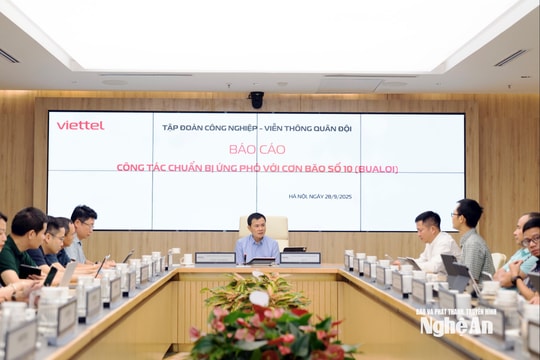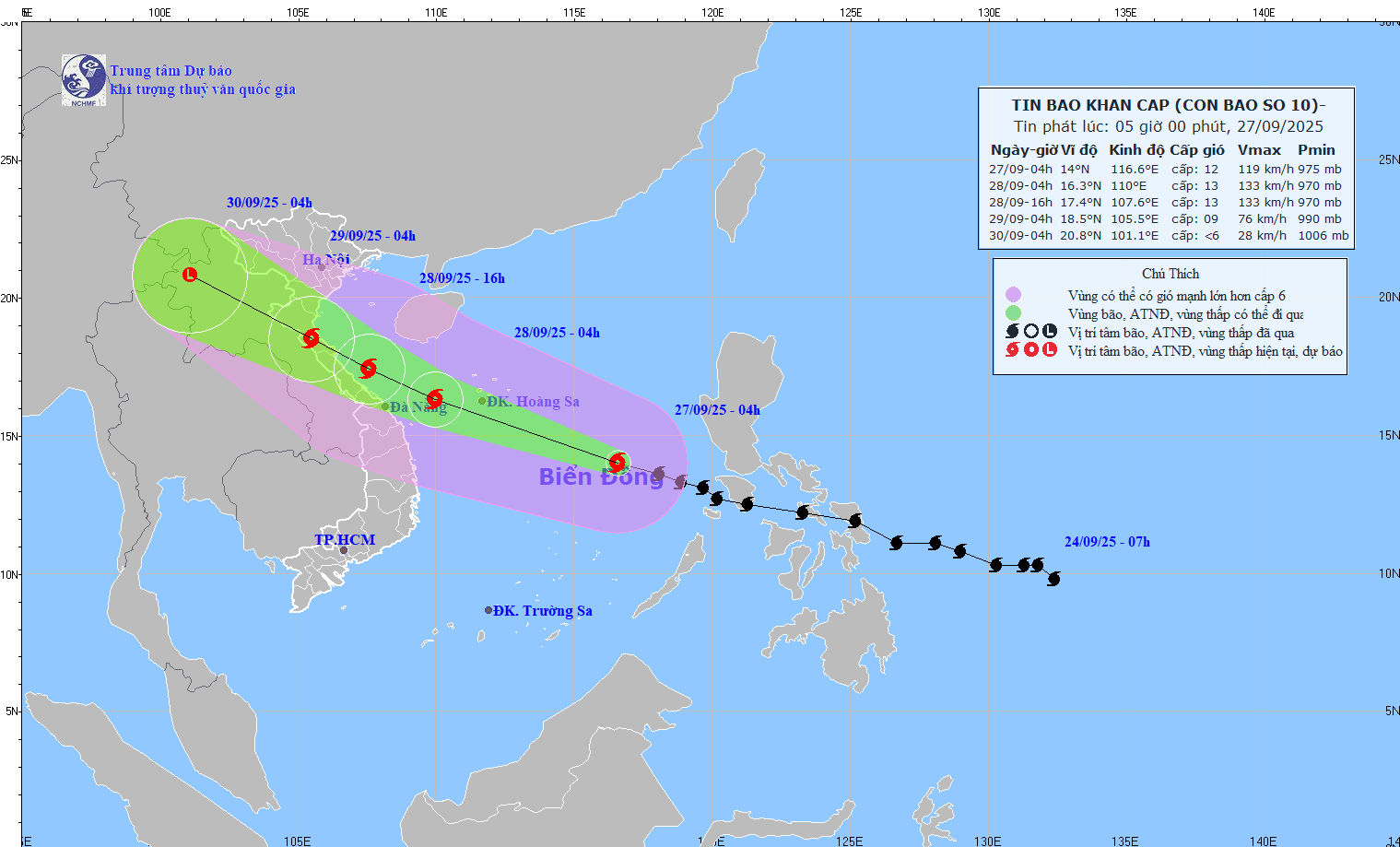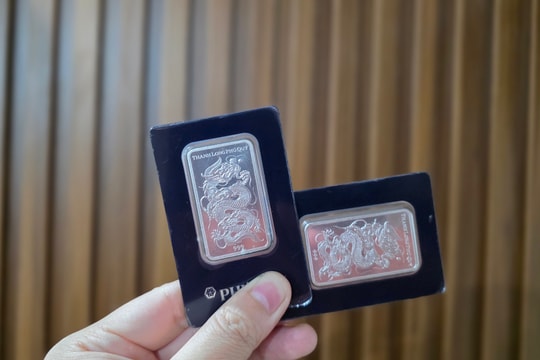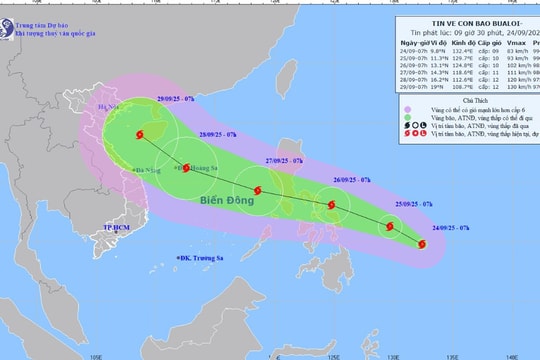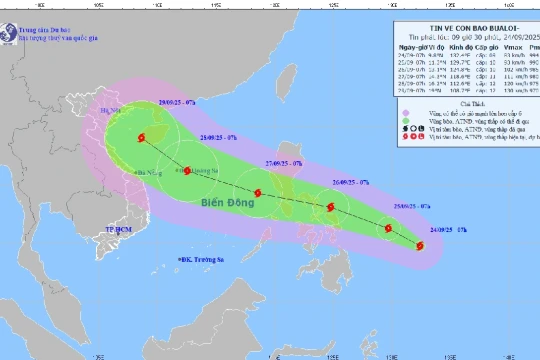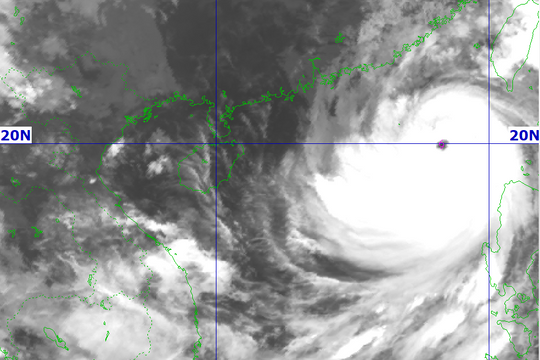China's political purpose in sending missiles to Hoang Sa
In addition to demonstrating territorial ambitions in the East Sea, China's move to deploy anti-aircraft missiles to Phu Lam Island, Hoang Sa archipelago, also has internal political purposes.
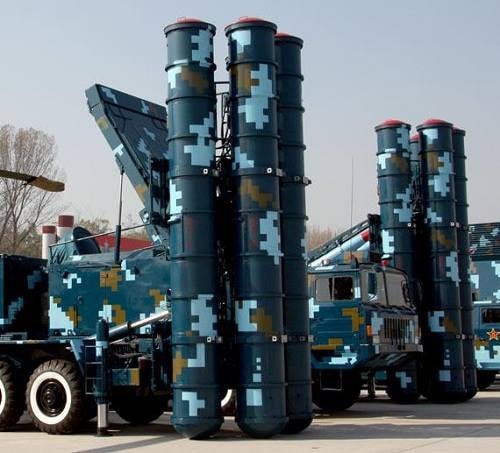 |
China's HQ-9 missile system. Photo: Anpdz |
On February 17, US media reported that Beijing deployed anti-aircraft missile systems to Phu Lam Island in Vietnam's Hoang Sa archipelago, which China seized by force in 1974. China established the so-called "Sansha City" on Phu Lam Island in July 2012 to seize archipelagos in the East Sea, including Vietnam's Truong Sa and Hoang Sa archipelagos.
Valerie Niquet, a China expert at the French Institute of International Relations, said that in addition to military purposes and asserting territorial ambitions, this move also has a profound political purpose for Beijing.
Ms. Niquet said that one of the characteristics of China's domestic policy is that whenever there is domestic instability, the Beijing government often tries to direct domestic public attention to the outside, in order to reduce criticism pressure and create time for leaders to focus on overcoming the internal situation.
"In 2009, when the Chinese economy was in great difficulty, the leadership at that time was criticized for its ineffective response to the impact of the global financial crisis. To temporarily cool down, Beijing chose to direct people's attention abroad by showing a tough attitude towards Washington in the collision with the USNS Impeccable," Ms. Niquet assessed.
According to the US Department of Defense, the shipUSNS Impeccable onMarch 8, 2009 was attacked by 5 Chinese shipsharassing approach, at times at a distance of only 7.5 m, on the SeaEast, an area about 120 km south of Hainan Island, forcing the USNS Impeccable to stop suddenly to avoid a collision.The Pentagon has condemned what it called "a dangerous and unprofessional provocative activity".
Francois Heisbourg, a political expert at the Paris Foundation for Strategic Research, also said that one of the reasons leading to the decision to deploy HQ-9 air defense missiles is China's internal political factor. China's strategy when deploying missiles in the East Sea is to arouse nationalism at home.
Since taking power, Chinese President Xi Jinping has vigorously carried out an anti-corruption campaign that is unprecedented in the country's history. This large-scale campaign has "touched" many powerful people in Chinese politics and has partly caused a wave of underground reactions from a part of the population. In that context, nationalism is an effective means for Xi Jinping to unite the people and consolidate power.
The Chinese Communist Party Congress is next year and Xi Jinping will be changing a series of senior leadership positions, while the country's economy is slowing down. So Xi Jinping needs to appear strong and demonstrate China's efforts to control the South China Sea.
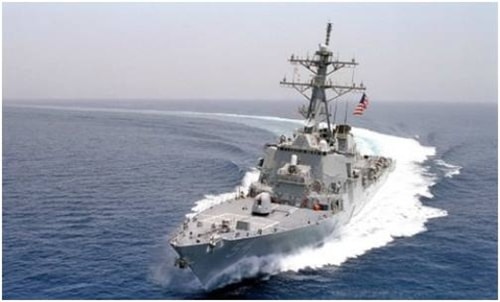 |
The US warship USS Lassen sailed within 12 nautical miles of the artificial islands that China illegally built in Truong Sa. Photo: Navsource.org |
In addition, Ms. Nicquet assessed that the US destroyer's freedom of navigation operations in the Paracel Islands last month to challenge China's sovereignty claims caused dissatisfaction among many hawkish politicians and scholars in China. They feel that China is being "bullied" and the leadership seems to have no effective measures to deal with it.
And Beijing could not have chosen a better time to appease these "hot heads". The deployment of an air defense missile system to Phu Lam Island in the Paracel Islands at a time when the US and ASEAN countries are holding a summit seems to be more symbolic than for any practical military purposes.
In addition, Chinese leaders also sought to create a buzz for this move to restore image and prestige among domestic scholars and analysts. Beijingfully aware that the movement of such large-sized weapons systems cannot escape the monitoring of modern US satellite reconnaissance systems, however, initially, they still affirmed that this information was a "fabrication" of the Western press.
"Beijing understands that when they react, the Western media"They will definitely present evidence, and they have unintentionally confirmed this information on behalf of the Chinese government to domestic public opinion," said expert Heisbourg.
And when the evidence was relatively clear, Beijing half-concealedly confirmed this possibility.
On February 18, Chinese Foreign Ministry spokesman Hong Lei said that China has deployed national defense systems, without specifying which systems, on the Paracel Islands for decades, and that there is nothing new.
Spokesman Hong Lei’s statement has been met with fierce criticism from many countries around the world. On February 19, the Vietnamese Ministry of Foreign Affairs sent a diplomatic note to the Chinese Embassy in Hanoi to protest Beijing’s violation of sovereignty over Hoang Sa, and also sent it to the United Nations.
US State Department spokesman John Kirby said that commercial satellite images showed the installation of missile systems "recently" taking place on Phu Lam Island, which goes against the commitment not to militarize the East Sea.of China.
"By deploying air defense missile systems in the Paracel Islands, Beijing wants toasserts a clear political purpose. That is to continue to stir up nationalism, which is based on territorial claims that have been growing stronger in China since Xi Jinping came to power. National pride, or the hope of a "Chinese dream", is the most effective means for the Chinese President to consolidate power towards a second term of leadership," Ms. Niquet asserted.
According to VNE
| RELATED NEWS |
|---|


